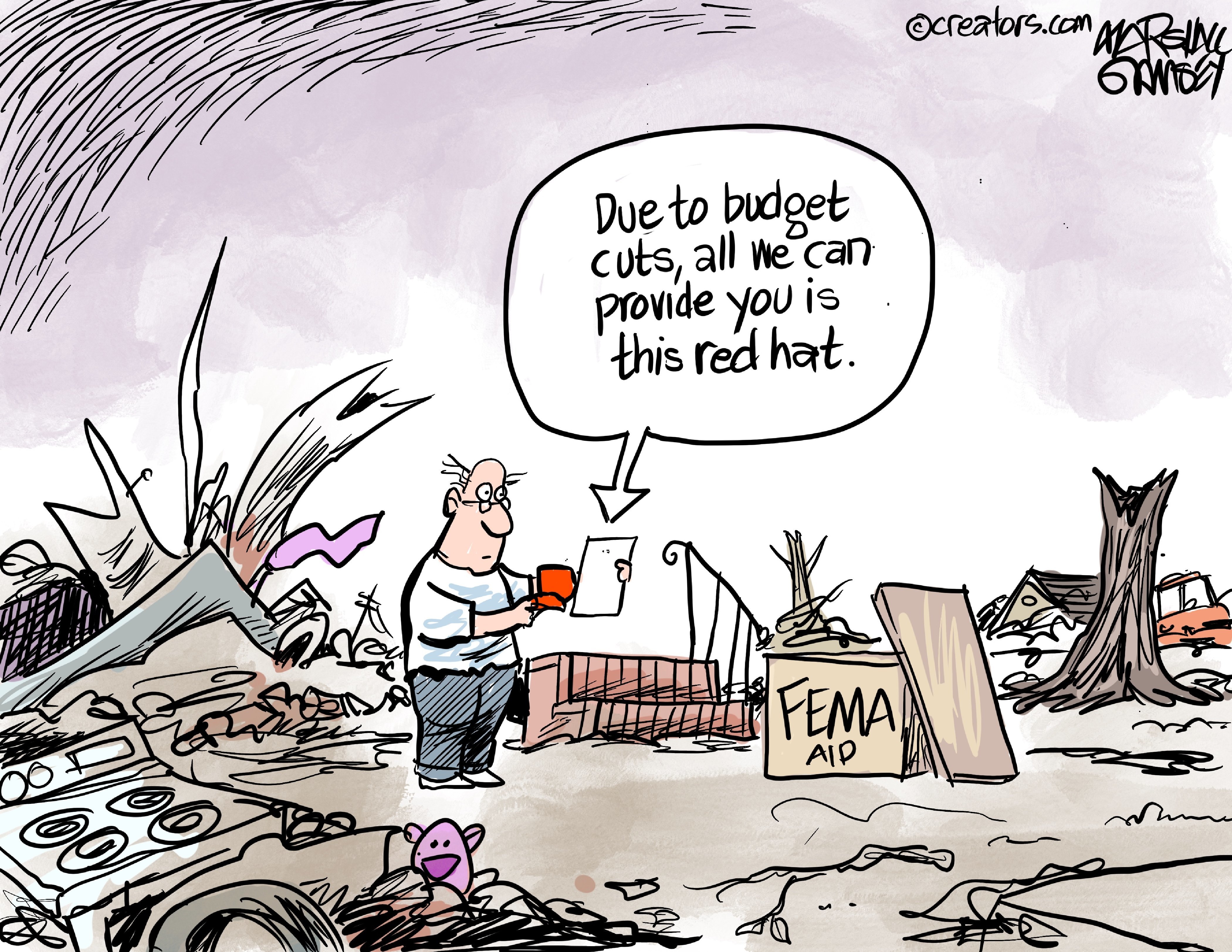Hollywood's horrible summer
The movie industry suffered its worst summer season in two decades

The smartest insight and analysis, from all perspectives, rounded up from around the web:
Even superheroes couldn't save Hollywood this summer, said Frank Pallotta at CNN. "Despite strong showings from Wonder Woman and Guardians of the Galaxy Vol. 2," the movie industry suffered its worst summer season in two decades, pulling in $3.83 billion in the U.S., down more than 14 percent from the same period last year, thanks to big-budget flops like Pirates of the Caribbean 5 and Transformers: the Last Knight. Adjusted for inflation, it's the worst domestic box office take since 1997, when the top films were Men in Black and The Lost World: Jurassic Park. "And the number of actual tickets sold this summer paints a bleaker picture," said Ryan Faughnder at the Los Angeles Times. Total theater admissions will likely end up around 425 million, the lowest figure since 1992. "No one can fully explain" why Americans aren't buying movie tickets the way they used to. Maybe it's sequel fatigue, or the fact that ticket prices hit a record high in the second quarter, at $8.95 per ticket. Consumers also have more entertainment choices than ever, including buzzy, original TV shows on streaming services such as Netflix and HBO NOW. "How about all of the above?"
"Ready for the truly alarming part? Hollywood is blaming a website: Rotten Tomatoes," said Brooks Barnes at The New York Times. Studio executives are furious with the movie review aggregator, "which boils down hundreds of reviews to give films 'fresh' or 'rotten' scores on its Tomatometer." Rotten Tomatoes scores "have become ubiquitous across the web," showing up in Google searches, next to iTunes movie rentals, and on the movie ticket–selling site Fandango. As studios see it, sticking a rotten score next to a purchase button is the same as posting "You are an idiot if you pay to see this movie," crushing films before they have a chance to find an audience. Sorry, Hollywood, but it's not lousy reviews that are killing your box office, said Rhett Jones at Gizmodo. The Emoji Movie scored a truly horrendous 8 percent on Rotten Tomatoes, "and it was a hit." But in a season of boring retreads, at least it was something original. "The point is, there are a lot of reasons movies do well, and critical consensus rarely tops that list."
The Week
Escape your echo chamber. Get the facts behind the news, plus analysis from multiple perspectives.

Sign up for The Week's Free Newsletters
From our morning news briefing to a weekly Good News Newsletter, get the best of The Week delivered directly to your inbox.
From our morning news briefing to a weekly Good News Newsletter, get the best of The Week delivered directly to your inbox.
The reason for Hollywood's summer from hell "might be as simple as bad timing," said Derek Thompson at The Atlantic. "To lasso millions of busy and distracted people into movie theaters, the major studios are spending more money on fewer films." That means one or two movies can make or break an entire quarter. The biggest film of 2017 so far, the live-action remake of Beauty and the Beast, came out in March, while summer was weighed down by expensive bombs such as King Arthur: Legend of the Sword. Hollywood is hoping to rebound with a big finish to the year, said Seth Kelley at Variety. So far, so good: The adaptation of Stephen King's It just set a record for the biggest September opening ever, pulling in more than $123 million in North America. "There are at least a few more potentially monster openings," including Thor: Ragnarok and Star Wars: The Last Jedi, on the way. But until then, "the industry will be on the edge of its collective seat."
A free daily email with the biggest news stories of the day – and the best features from TheWeek.com
-
 August 31 editorial cartoons
August 31 editorial cartoonsCartoons Sunday’s political cartoons include FEMA's new scheme, Gavin Newsom's antics, and a clue in the Epstein files
-
 Disarming Hezbollah: Lebanon's risky mission
Disarming Hezbollah: Lebanon's risky missionTalking Point Iran-backed militia has brought 'nothing but war, division and misery', but rooting them out for good is a daunting and dangerous task
-
 Woof! Britain's love affair with dogs
Woof! Britain's love affair with dogsThe Explainer The UK's canine population is booming. What does that mean for man's best friend?
-
 The pros and cons of noncompete agreements
The pros and cons of noncompete agreementsThe Explainer The FTC wants to ban companies from binding their employees with noncompete agreements. Who would this benefit, and who would it hurt?
-
 What experts are saying about the economy's surprise contraction
What experts are saying about the economy's surprise contractionThe Explainer The sharpest opinions on the debate from around the web
-
 The death of cities was greatly exaggerated
The death of cities was greatly exaggeratedThe Explainer Why the pandemic predictions about urban flight were wrong
-
 The housing crisis is here
The housing crisis is hereThe Explainer As the pandemic takes its toll, renters face eviction even as buyers are bidding higher
-
 How to be an ally to marginalized coworkers
How to be an ally to marginalized coworkersThe Explainer Show up for your colleagues by showing that you see them and their struggles
-
 What the stock market knows
What the stock market knowsThe Explainer Publicly traded companies are going to wallop small businesses
-
 Can the government save small businesses?
Can the government save small businesses?The Explainer Many are fighting for a fair share of the coronavirus rescue package
-
 How the oil crash could turn into a much bigger economic shock
How the oil crash could turn into a much bigger economic shockThe Explainer This could be a huge problem for the entire economy